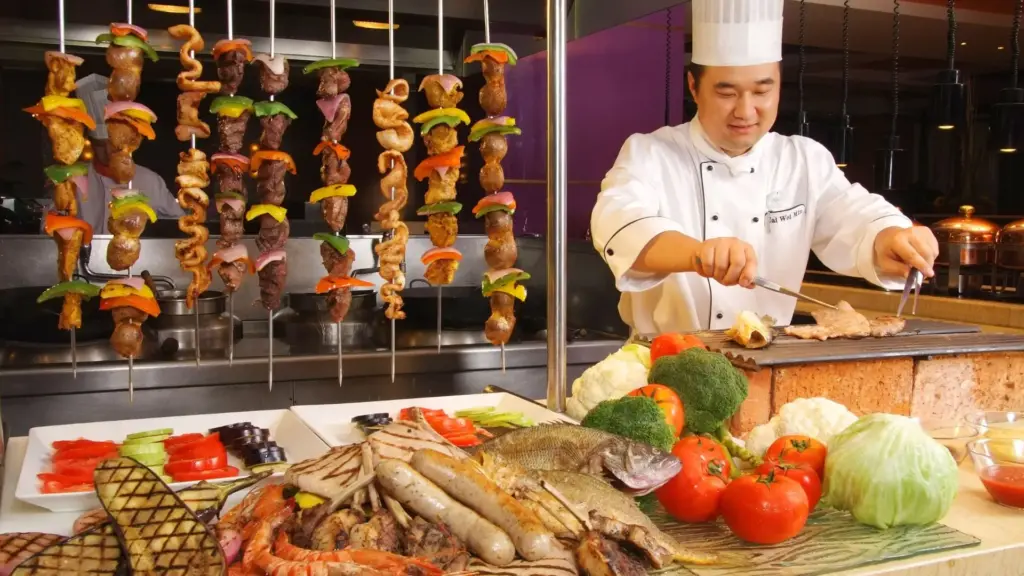Online reviews play a pivotal role in the digital marketing strategy of restaurants, particularly in enhancing their SEO (Search Engine Optimization). Online reviews not only influence potential customers’ decisions but also significantly impact search engine rankings.
Table of Contents
Here’s a detailed look at how online reviews affect restaurant SEO:
1. Online Reviews Boost Visibility and Local Search Rankings
Online reviews are crucial for local SEO, helping restaurants appear in local search results. Search engines like Google consider the quantity, quality, and frequency of reviews as key ranking factors. Positive reviews can boost a restaurant’s visibility on Google Maps and local search queries, making it easier for potential customers to find the restaurant.
Key Points to Note:
- Reviews contribute to higher rankings in local search results.
- Positive reviews increase visibility on Google Maps.
- Frequent reviews signal to search engines that the business is active and engaging with customers.

2. Social Proof and Credibility
Reviews serve as social proof, which is essential for building trust and credibility with potential customers. When a restaurant has numerous positive reviews, it establishes a reputation for quality and reliability, encouraging more people to visit. This increased traffic can indirectly boost SEO performance by improving engagement metrics such as click-through rates (CTR) and dwell time.
Key Points to Note:
- Positive reviews enhance trust and credibility.
- High review ratings attract more customers.
- Increased traffic from trusted reviews can improve overall SEO metrics.
3. User-Generated Content
Online reviews are a form of user-generated content (UGC), which is highly valued by search engines. UGC adds fresh, relevant content to a restaurant’s online presence, signaling to search engines that the website or business profile is active and up-to-date. This continual stream of new content can help improve a restaurant’s SEO.
Key Points to Note:
- Reviews provide fresh content for search engines to index.
- UGC can include keywords that help with search engine rankings.
- Regular updates from reviews show search engines that the business is active.
4. Keywords and SEO Relevance
Reviews often contain keywords that potential customers use when searching for a restaurant. These keywords can help improve the restaurant’s SEO by making the business more relevant to specific search queries. For instance, if customers frequently mention “best pizza” or “great ambiance” in their reviews, these keywords can help the restaurant rank higher for those terms.
Key Points to Note:
- Reviews include relevant keywords naturally.
- Keywords in reviews can improve search relevance.
- Search engines use review content to understand the restaurant’s offerings and quality.
5. Customer Engagement and Feedback
Responding to reviews shows that a restaurant values customer feedback, which can improve customer satisfaction and loyalty. Engaging with reviewers by addressing their comments, whether positive or negative, can also enhance the restaurant’s online reputation. This engagement is viewed positively by search engines and can contribute to better SEO rankings.
Key Points to Note:
- Responding to reviews demonstrates customer engagement.
- Active engagement can improve customer loyalty and satisfaction.
- Search engines favor businesses that interact with their customers.
6. Influence on Click-Through Rates (CTR)
Reviews can influence the click-through rate (CTR) of a restaurant’s listing in search results. A high number of positive reviews can make a listing more appealing, leading to a higher CTR. Search engines consider CTR as an indicator of relevance and user satisfaction, which can positively impact SEO rankings.
Key Points to Note:
- Positive reviews increase CTR from search results.
- Higher CTR signals relevance to search engines.
- Improved CTR can lead to better SEO performance.
7. Rich Snippets and Review Schema
Implementing review schema markup on a restaurant’s website can enhance the appearance of search results by displaying star ratings and review counts. These rich snippets make the listing stand out, potentially increasing the CTR and improving SEO.
Key Points to Note:
- Review schema markup enhances search result appearance.
- Rich snippets attract more clicks.
- Increased CTR from rich snippets can boost SEO rankings.
In Conclusion
Online reviews are a critical component of restaurant SEO. They influence local search rankings, building credibility, providing user-generated content, and improves engagement metrics.
By actively managing and encouraging positive reviews, restaurants can enhance their online visibility, attract more customers, and ultimately improve their SEO performance.
The SEO team here at SEOgrill, can help you with your restaurant online reputation management. Contact us now to book a free consultation.






